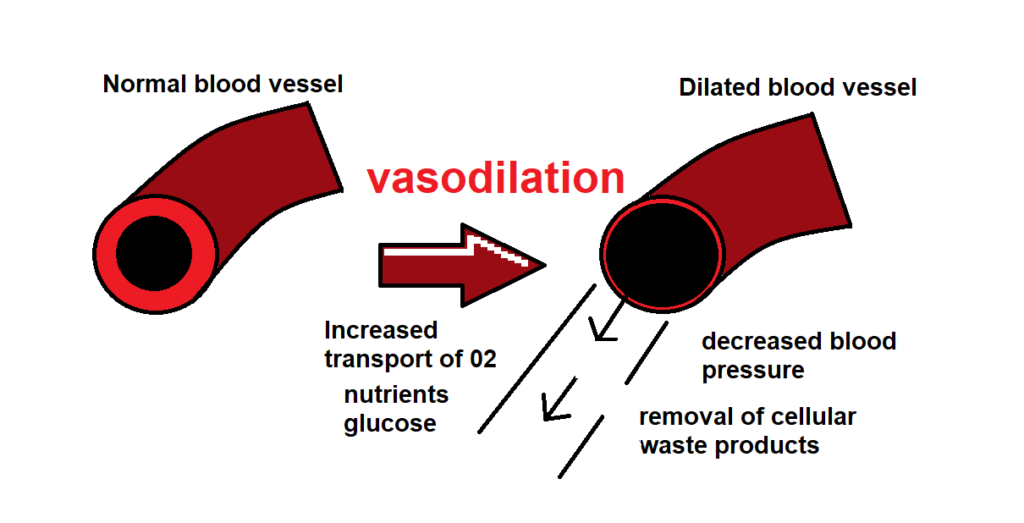Table of Contents
Introduction
In the realm of human health, an unassuming molecule named nitric oxide emerges as a powerful player. This article dives deep into the diverse effects of nitric oxide signaling on our well-being. From cardiovascular health to neurological functions, immune responses to exercise performance, this unassuming molecule wields significant influence across the board.
In the annals of scientific accolades, the 1998 Nobel Prize in Medicine was dedicated to Louis Ignarro, Robert F. Furchgott, and Ferid Murad, for unearthing the monumental role of nitric oxide signaling in the cardiovascular orchestra. Ignarro, in particular, illuminated the symphony, revealing that blood vessels serve as NO artisans, deftly crafting dilation and constriction, choreographing the ballet of blood flow. Furthermore, he unveiled the subtle craftsmanship of nitric oxide as a gaseous envoy of neural orchestration, a virtuoso guiding the intricate dance of our neurological domain.
Understanding Nitric Oxide Signaling
Nitric oxide, often abbreviated as NO, operates as a signaling molecule with intricate communication abilities. By seamlessly connecting cells and systems within the body, nitric oxide orchestrates the symphony of human health, ensuring a harmonious balance.

Cardiovascular Health
Nitric oxide’s cardiovascular impact is undeniable. Through its unique ability to relax blood vessels, it improves blood circulation and effectively regulates blood pressure. By promoting vasodilation, nitric oxide signaling helps mitigate the risk of heart diseases and strokes.
Neurological Impact
The connection between nitric oxide signaling and cognitive health is captivating. Increased blood flow to the brain, courtesy of nitric oxide, translates into enhanced cognitive function. Moreover, its potential in addressing neurodegenerative diseases opens doors to innovative treatments.
Immune System Modulation
Nitric oxide’s role extends to immune response modulation. As a powerful immune regulator, it equips the body to fend off infections and pathogens effectively, showcasing its indispensable role in bolstering our immunity.

Exercise Performance and Muscle Function
When you hit the gym, nitric oxide gets to work. By inducing vasodilation during exercise, it optimizes oxygen delivery to muscles, enhancing endurance and post-workout recovery. Additionally, nitric oxide fine-tunes muscle contractions for optimal performance.
Gastrointestinal Health
The gastrointestinal tract benefits from nitric oxide’s influence too. It affects nutrient absorption and the overall efficiency of digestive processes, further highlighting its reach across bodily functions.
Cellular Communication and Regeneration
Interactions between cells are the fabric of human functioning. Nitric oxide serves as a mediator, facilitating communication for coordinated actions. This extends to tissue repair and wound healing, showcasing its reparative capabilities.
Antioxidant Properties
In the battle against oxidative stress, nitric oxide is a potent ally. Its antioxidant properties neutralize free radicals, preventing cellular damage and contributing to the prevention of chronic diseases.
Therapeutic Applications
The applications of nitric oxide in the medical field are expanding. From cardiovascular treatments to wound healing, nitric oxide-based therapies offer new avenues for enhancing human health and well-being.
Factors Influencing Nitric Oxide Production

The keys to optimal nitric oxide production lie in our daily choices. Nutrition, exercise, and lifestyle play vital roles in maintaining a balanced nitric oxide level, influencing everything from heart health to cognitive function.
Challenges and Considerations
Striking the right balance is essential, as excessive nitric oxide can lead to unintended consequences. Vigilance, consulting professionals, and making informed decisions are crucial steps in harnessing its benefits safely.
Future Directions and Research
The world of nitric oxide research is a dynamic field. Ongoing studies continue to unveil new facets of its role, promising a future where its potential in enhancing human health will be even more finely harnessed.
Conclusion
Nitric oxide, once a hidden player in our health narrative, now stands at the forefront. Its signaling effects encompass a myriad of processes, touching everything from our hearts to our brains. By acknowledging its impact and embracing strategies to optimize its presence, we embark on a journey toward improved well-being.
FAQs
Q1: Can nitric oxide supplements replace a healthy lifestyle?
A: While supplements may offer benefits, they should complement, not replace, a balanced diet and active lifestyle.
Q2: Are there any natural sources of nitric oxide?
A: Yes, foods rich in nitrates like leafy greens and beets can contribute to nitric oxide production.
Q3: Can nitric oxide impact mental health?
A: Yes, improved blood flow to the brain can positively influence cognitive function and mental wellbeing.
Q4: Are there any risks associated with nitric oxide supplementation?
A: Excessive nitric oxide levels may have adverse effects; consulting a healthcare professional is advised.
Q5: How can I naturally enhance nitric oxide production?
A: Regular exercise, a diet rich in nitrate-containing foods, and managing stress can support healthy nitric oxide levels.
Q6: What does the future hold for nitric oxide research?
A: Ongoing studies continue to reveal new possibilities, suggesting that nitric oxide’s potential in human health is far from fully explored.

4 thoughts on “10 Nitric Oxide Signaling Pathways”